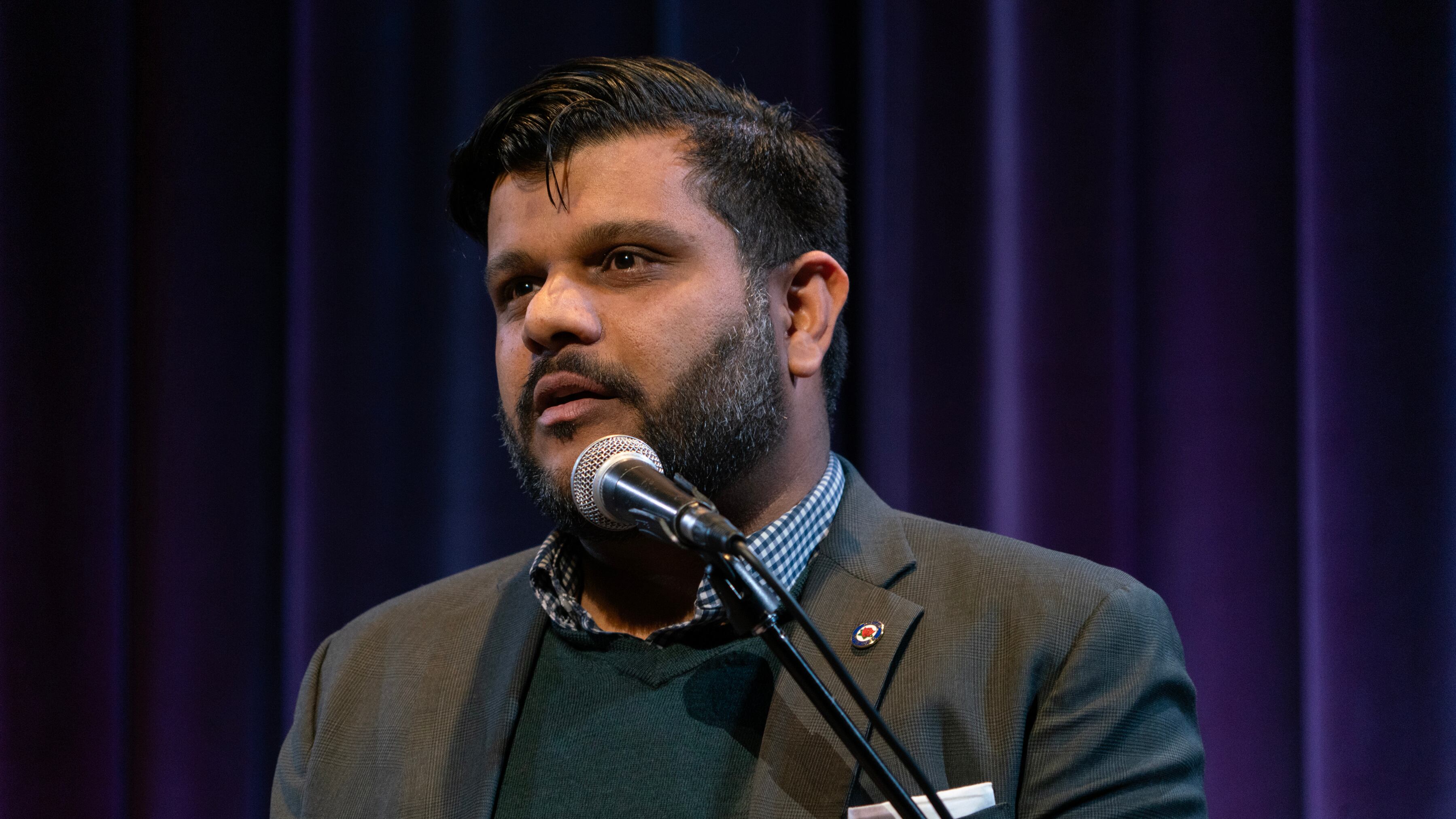Councilor Sameer Kanal is ruffling the feathers of the Portland Police Association.
Before his election to the Portland City Council in November, Kanal worked as the project manager leading the formation of a new police accountability body for the city. This month, Kanal filed a resolution to be heard in front of the Community and Public Safety Committee this week that aims to tweak some minor aspects of the city’s new soon-to-be police accountability body, called the Community Police Oversight Board, which is supposed to be seated this year.
The new police accountability body was the result of a 2020 ballot measure overwhelmingly approved by voters that created a new, citizen-led police accountability body. The measure set up a 20-member committee to decide what that body would look like, including the scope of its powers, its membership and its authority. The result, finalized by the committee in September 2023, was a 33-member body that would have sweeping powers to conduct investigations into alleged wrongdoing, impose penalties on cops found guilty of misconduct, and strict restrictions on membership, including no former or current police officers and no relatives of police officers.
But the former City Council, when the proposal came to them for approval in November 2023, significantly scaled back the plan.
The council reduced the group’s size to 21 members, decreased the authority of the body to decide penalties, and gave ultimate power of discipline to the police chief. That proposal then went to the U.S. Department of Justice to ensure it aligned with the DOJ’s settlement agreement with the city of Portland. Late last year, a federal judge overseeing the settlement said the city must wait to appoint the nominating committee until January 2025, further delaying the board’s implementation.
Naturally, some police accountability advocates were displeased by the former council’s decision to alter the committee’s plan so dramatically, saying it left the future body toothless. Kanal was among them.
When Kanal took office in January as one of the 12 new members of the City Council, he made it clear in the first few weeks that he was intent on strengthening police accountability. He also made that clear during his campaign, in which he often opined on what he felt was the city’s slow-walking of the new police accountability body.
The resolution Kanal filed for next week’s City Council meeting reaffirms that position. In it, Kanal writes that “the previous City Council’s authorization of Code included significant deviations from the recommendations of the Police Accountability Commission, and members of the public felt the Code was not consistent with the vision of the Charter amendments in 2020 and the will of the voters” and added that “a clear and consistent definition of ‘bias’ is necessary to ensure this impartiality, and the effectiveness of the new community police oversight board.”
The two amendments Kanal is seeking: placing five community members on the committee that nominates board members instead of just four (and ensuring that one from each voting district is chosen), and expanding on the definition of “bias for or against law enforcement,” which disqualifies applicants from being placed on the board, and can also lead to the removal of a board member.
Kanal is seeking to expand the definition of bias to: “Objective demonstration of bias is the existence of a state of mind on the part of a CBPA applicant or member that objectively demonstrates that the CBPA member cannot make decisions impartially and without prejudice. Demonstration of this may exist when a reasonable person would find that a CBPA applicant or member formed or expressed an opinion indicating a predetermination of the merits without consideration of the facts of any particular case file and that all of the circumstances indicate the CBPA member cannot disregard such opinion and hear matters before them impartially.”
The president of the Portland Police Association, the union that represents Portland police officers, Aaron Schmautz, said in a statement to WW that Kanal in this resolution “made his anti-union, anti-public safety bias clear.”
“Portlanders voted for a new form of government for better representation and outcomes,“ Schmautz said. ”We are facing a budget and economy crisis. Portlanders are demanding public safety be the focus. And yet Councilor Kanal’s focus is redefining bias in a collectively bargained policy to ensure he can unfairly punish cops."
Kanal disputes that.
“Constitutional, equitable, accountable policing is effective policing. Clearly defining who is eligible to serve on community-led committees encourages the kind of inclusive civic participation we need," Kanal said. “Voters chose a new form of government in part because we weren’t seeing the representation and outcomes we deserve. Public safety is a priority for Portlanders and for me as the co-chair of the Community and Public Safety committee, and I will continue to be responsive to community concerns.”
It’s not the first time Kanal has clashed with the police union since taking office just two months ago. He sent ripples through the public safety bureaus and the unions that represent their workforces in January when he asked city officials to explore what budget cuts across the public safety bureaus would look like. (The Police Bureau, Portland Fire & Rescue, and the Bureau of Emergency Communications had initially been exempt from drafting budget cuts for the upcoming fiscal year, in which city officials say they face a $100 million budget shortfall.)
At the time, Kanal said Portlanders “can continue to expect due diligence from my office on all bureaus’ budgets, so that we deliver the outcomes Portlanders deserve.”

